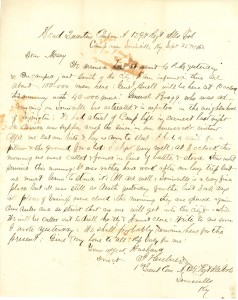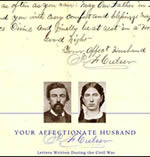 [google-map-v3 width=”400″ height=”300″ zoom=”12″ maptype=”hybrid” mapalign=”right” directionhint=”false” language=”default” poweredby=”false” maptypecontrol=”false” pancontrol=”false” zoomcontrol=”true” scalecontrol=”falso” streetviewcontrol=”false” scrollwheelcontrol=”false” draggable=”true” tiltfourtyfive=”false” addmarkermashupbubble=”false” addmarkermashupbubble=”false” addmarkerlist=”38.25486; -85.766404{}1-default.png” bubbleautopan=”true” showbike=”false” showtraffic=”false” showpanoramio=”false”]
[google-map-v3 width=”400″ height=”300″ zoom=”12″ maptype=”hybrid” mapalign=”right” directionhint=”false” language=”default” poweredby=”false” maptypecontrol=”false” pancontrol=”false” zoomcontrol=”true” scalecontrol=”falso” streetviewcontrol=”false” scrollwheelcontrol=”false” draggable=”true” tiltfourtyfive=”false” addmarkermashupbubble=”false” addmarkermashupbubble=”false” addmarkerlist=”38.25486; -85.766404{}1-default.png” bubbleautopan=”true” showbike=”false” showtraffic=”false” showpanoramio=”false”]
Head Quarters Company A, 129th Regt. Ills. Vol.
Camp near Louisville, Ky. Sept. 25th 1862
Dear Mary
We arrived here at about 6 P.M. yesterday & encamped just south of the city. I am informed there are about 100,000 men here.1 Genrl. Buell will be here at 10 o’clock this morning with 40,000 more.2 General Bragg, who was advancing on Louisville, has retreated & is reported in the neighborhood of Lexington.3
We had a trial of Camp life in earnest last night. We carried our supper across the river in our haversacks, without coffee, we eat our bite & lay us down to sleep. I had a rail for a pillow & the ground for a bed. I slept very well. At 3 o’clock this morning we were called & formed in line of battle & stood there until sunrise this morning. It was rather hard work after our long trip, but we must learn to stand it. All are well.
Louisville is a very fine place, but all was still as death yesterday. For the last 3 or 4 days, all places of business were closed; this morning they are opened again. Our rules are so strict that no one will get into the city for a while. We will be called out to drill shortly, & I must close.
Write to me soon. I wrote yesterday. We shall probably remain here for the present. Give my love to all. Kiss baby for me.
Your affect. Husband
J. F. Culver
- On September 24, Maj. Gen. Thomas L. Crittenden had crossed Salt River with the advance of Buell’s army and entered Louisville. Maj. Gen. Alexander McD. McCook’s division followed Crittenden. By the 27th all of Buell’s army had reached Louisville. The Federals had won the race.
Lieutenant Culver exaggerated the number of Union troops available for defense of Louisville. On the 24th Maj. Gen. William Nelson, the officer responsible for the city’s defense, reported he had 35,000 men; that they were entrenched; and that he believed he could hold the city. With Crittenden came 12,000 men and six batteries, increasing the force camped in and around Louisville to 47,000. O.R., Ser. I, Vol. XVI, pt. II, pp. 540-541; Robert E. McDowell, City of Conflict: Louisville in the Civil War, 1861-1865 (Louisville, 1962), p. 89. [↩] - Culver was correct. Buell reached Louisville from Green River on the 25th with several brigades of his Army of the Ohio. It was the 27th before the last of Buell’s troops entered the Louisville perimeter. Buell’s field army numbered about 47,500. O.R., Ser. I, Vol. XVI, pt. I, pp. 14, 111, 616; O.R., Ser. I, Vol. XVI, pt. II, pp. 542-543. [↩]
- General Bragg’s Army of Tennessee had occupied Bardstown, 35 miles southeast of Louisville, on the 22d. The Confederate force at Lexington was the army led by Maj. Gen. Edmund Kirby Smith, which had advanced into Kentucky from East Tennessee. Bypassing Cumberland Gap, Smith’s columns had routed the Federals at Richmond, Ky., on August 30 and had swept into the Bluegrass Region, occupying Lexington and Frankfort, and threatening Cincinnati. O.R., Ser. I, Vol. XVI, pt. II, pp. 864-865. [↩]

 Subscribe via RSS
Subscribe via RSS Subscribe via Email
Subscribe via Email